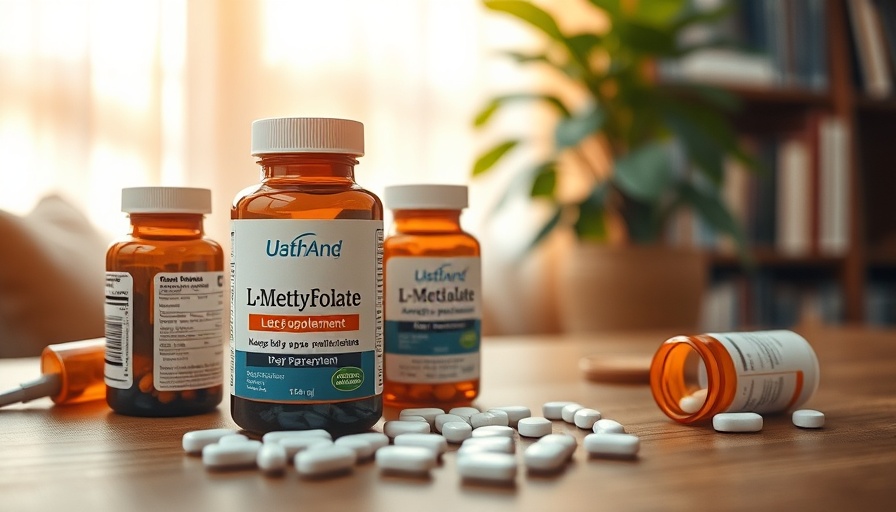
Unlocking the Potential of L-Methylfolate in Mental Health
L-Methylfolate, the active form of vitamin B9, is gaining attention in the mental health community as a potential game-changer for those struggling with depression, especially those who find traditional antidepressants ineffective. This compound plays a crucial role in the synthesis of neurotransmitters, which are vital for mood regulation. While the body can convert dietary folate into L-Methylfolate, genetic variations in enzyme production can hinder this process, leading to potential deficiencies even among those consuming folate-rich foods.
What Makes L-Methylfolate Essential?
Understanding the significance of L-Methylfolate goes beyond just knowing it’s a B vitamin. Research indicates that low levels of L-Methylfolate are associated with depression, and some individuals may not produce sufficient amounts, despite an adequate dietary intake. This situation creates a unique scenario where supplementation becomes essential.
Notably, L-Methylfolate is crucial for producing serotonin, dopamine, and norepinephrine—three key neurotransmitters linked to mood. Since conventional antidepressants operate by targeting these same neurotransmitters, L-Methylfolate can potentially enhance the efficacy of these medications, revealing a deeper connection between nutrient levels and depressive symptoms.
The Power of Supplementation in Treatment-Resistant Cases
Many individuals with treatment-resistant depression may find that their symptoms persist despite various medication strategies. Emerging studies highlight how L-Methylfolate supplementation could help these patients. Unlike typical antidepressant medications which directly affect neurotransmitter levels, L-Methylfolate supports the biological process of producing these important chemicals, potentially yielding a more natural and sustainable mood improvement.
Interestingly, research suggests that L-Methylfolate may be particularly beneficial for those dealing with inflammation or heightened body mass index (BMI). By targeting these specific conditions, L-Methylfolate provides a multifaceted approach to mental health treatment, raising hopes among those who feel they’ve exhausted other options.
The Role of L-Methylfolate as a Medical Food
The FDA regulates L-Methylfolate as a medical food, which necessitates a prescription. This classification means it is generally safer, presenting less risk of side effects compared to standard psychiatric medications. This unique status makes it a viable option for individuals looking to explore alternatives without adding to their medication burdens.
Personal Experience: A Journey to Well-Being
In my own journey through mental health care, a trusted physician introduced me to L-Methylfolate. After years on anticonvulsants, which can hinder the body’s nutrient absorption, the need for such supplementation became clear. This experience underscores the importance of individualized treatment plans, particularly in mental health, where responses to medication can significantly vary.
Should You Consider Trying L-Methylfolate?
While L-Methylfolate is not a panacea, it holds potential, especially for those whose typical treatment approaches have fallen short. Speaking with your doctor about the possibility of incorporating L-Methylfolate into your treatment plan may prove beneficial.
Ultimately, the key takeaway is that self-advocacy plays a critical role in mental health care. If you're navigating treatment-resistant depression, don’t hesitate to explore all avenues, including supplements like L-Methylfolate. It could be the missing puzzle piece in achieving the balance you’ve been seeking.
As always, consult with your healthcare provider before initiating any new supplements—your health deserves careful consideration. By staying informed and proactive, you can take significant steps toward greater mental well-being.
 Add Row
Add Row  Add
Add 




Write A Comment